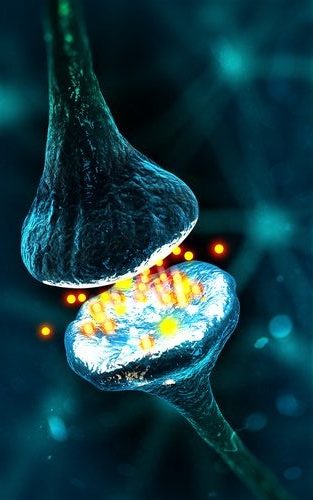GABA: The Calming Neurotransmitter
What is GABA and what does it do?
Gamma-aminobutyric acid (GABA) is one of the most important neurotransmitters* in the brain (*chemicals in the brain that communicate with each other). It decreases nervous system activity by blocking signals to the brain, helping it slow down and rest. It minimizing stress and anxiety, providing a protective and calming effect on the brain and body.
GABA is found in the intestines, stomach, bladder, lungs, liver, skin, spleen, muscles, kidneys, pancreas, and reproductive organs.
GABA produces effects such as:
- Relieving anxiety, fear
- Reducing stress
- Improving sleep
- Preventing brain damage
- May protect against depression and anxiety
- Helping with PMS
- Improving your mood
The brain naturally releases GABA at the end of your day to promote sleepiness and allow you to rest.
What causes GABA to decrease?
This is something we just don't know enough about but it may be the combination of several factors like genetics, long periods of stress, lack of exercise, poor diet, too much caffeine and poor gut health.
How can I increase my GABA levels to promote calm?
There are GABA synthetic supplements + medications that are available but there is little research to prove that they actually work.
However there are many natural ways to increase your natural GABA levels:
- Exercise (especially mind-body practices like yoga) Fun fact: the levels of this neurotransmitter in the brain can increase up to 27% after a single yoga session.
- Consume GABA producing foods such as fruit, vegetables, whole grains, sprouts and fermented foods.
- Drink a tea daily that contains GABA increasing herbs: our Gaia's Breath Calming Tea is perfect for this.
Herbs that help promote GABA include:
Kava, Valerian, Skullcap, Lemon Balm, Ashwaghanda, Lavender, Chamomile, Passionflower and Magnolia Bark.


If you want to do a more in depth read on GABA please refer to my references below.
References:
NOTE:
We do not recommend taking any herbal teas whilst pregnant unless you have done your own research or consulted a professional herbalist or doctor.
If you have a medical condition or take pharmaceutical drugs please consult your doctor prior to use, especially if you have a heart or a blood pressure condition.
Speak with your healthcare provider to determine whether any of your medications could interact with any herbs.
This information is intended only as a general reference for further exploration, and is not a replacement for professional health advice. This content does not provide dosage information, format recommendations, toxicity levels, or possible interactions with prescription drugs. Accordingly, this information should be used only under the direct supervision of a qualified health practitioner such as a naturopathic physician.
